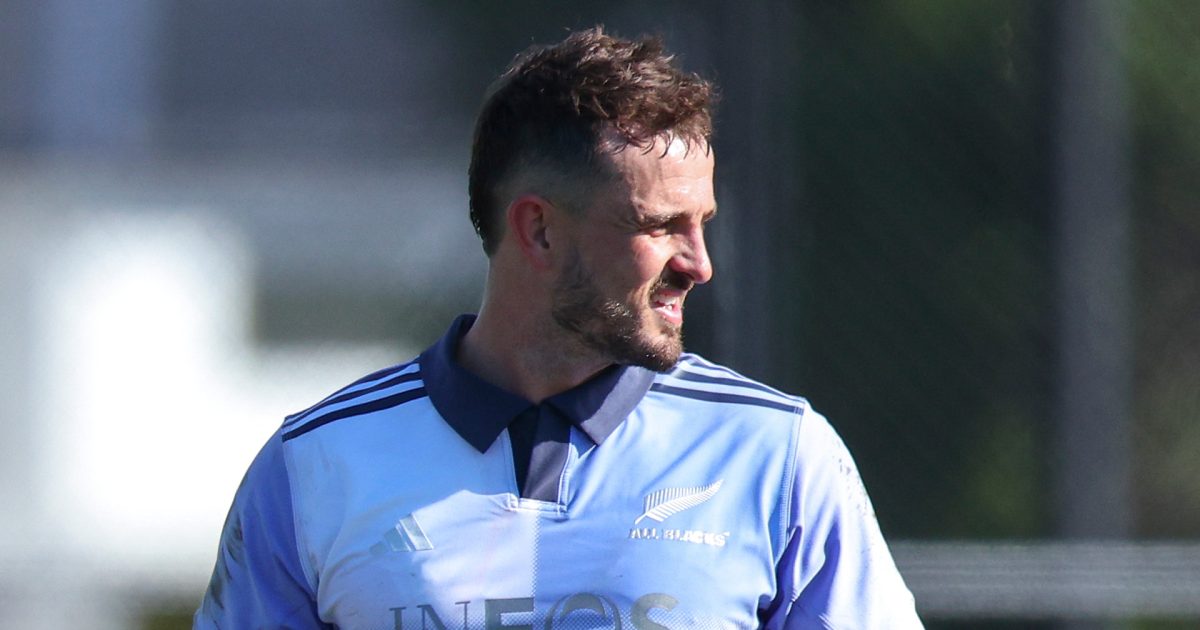New Zealand needs a reliable No.10 like Harry Plummer

There was no necessity for the All Blacks to draft Harry Plummer into their squad.
Stephen Perofeta might have a niggle, but that’s of no consequence.
Perofeta is a peripheral part of this squad to begin with, made even more so by the rejuvenation of Beauden Barrett and subsequent selections of Will Jordan and Ruben Love.
Perofeta’s never going to be trusted at first five-eighth, but Plummer might be.
If I was heartened by the return of Jordan and, particularly, David Havili to the squad last week, I’m even more enthused by Plummer’s inclusion.
New Zealand needs a reliable No.10. Someone able to follow a gameplan, give others the opportunity to do the brilliant things and not commit errors that put everyone under pressure.
Damian McKenzie might yet become that player. Barrett too, for that matter.
But, like the selection of Havili, the summoning of Plummer suggests the All Blacks coaches have taken stock.
They’ve seen what they have, assessed what they lack and sought to make selections that add to the sum of the parts.
Plummer is a fine footballer. He’s not brilliant, probably not destined to be an all-time great, but he is a guy who can do a job for you.
That’s what I mean about reliability.
To my eye, if you set Plummer a simple task, you can depend on him to perform it.
Controlling the controllables, in other words.
Without Richie Mo’unga, there’s an element of hope about who the All Blacks are sending onto the park at first five-eighth.
There are few more brilliant players around than McKenzie.
I love watching him play for the Chiefs.
But the stakes are low and the opposition often scant.
McKenzie can afford to make errors or take wrong options at that level, because he has the time, space and absence of pressure to rectify them.
If we were to liken McKenzie to an NFL quarterback, you’d probably describe him as a scrambler. A guy who calls a play, doesn’t like what he sees from the defence and then plays off the cuff.
That can be immensely effective and, in a rugby sense, we do see plenty of tries that come from broken play.
I’ll persist with the NFL comparisons for a minute, in light of comments All Blacks attack coach Leon MacDonald made after the second test against England.
MacDonald suggested plays had been rehearsed, then called on the field, which broke down. Players forgot or misheard calls and everything became untidy.
We seem to be getting into an era where guys play less of what they see and more of what’s been prescribed.
That’s the appeal of Plummer, from a coaching point of view. If a play’s called, I suspect you can rely on him to run it as it was designed.
I don’t know how effective that strategy is, but I imagine it gives coaches a degree of comfort.
So I’m encouraged that the All Blacks are having a look at Plummer. How much he plays – if ever – remains to be seen.
But when I look at this squad, I feel he offers more to it than Perofeta can, who’s always struck me as a poorer version of McKenzie.
The only thing that seems rigid about this new coaching group is the way they want to play. The fact they’re broadminded enough to consider which personnel are best equipped to execute that gameplan suggests better times could be ahead for these All Blacks.














